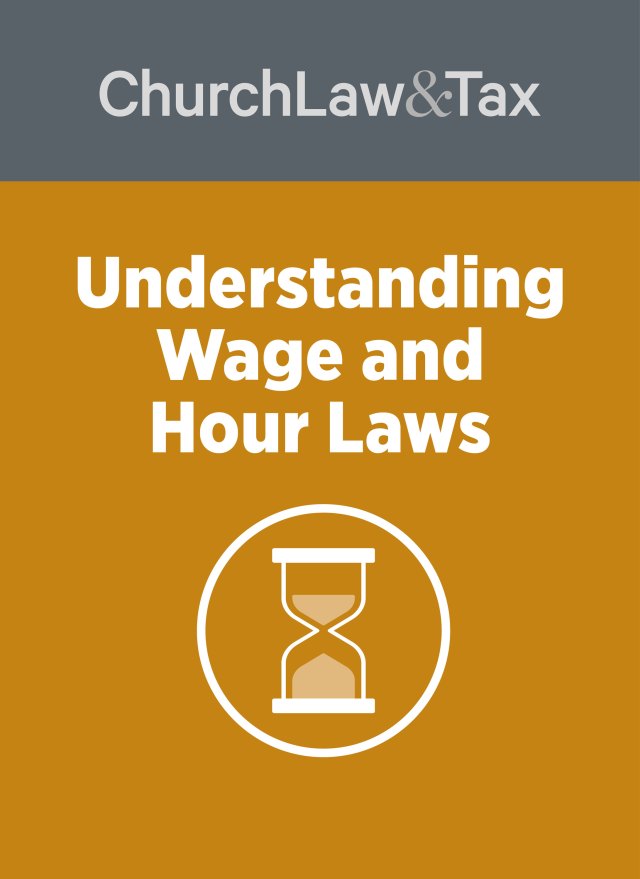• Key point. Churches that engage in commercial enterprises are subject to the minimum wage, overtime pay, and child labor provisions of the Fair Labor Standards Act.
A federal court in North Carolina ruled that a church—operated vocational training program was in violation of federal child labor law. The church used children as young as 11 years of age to work as laborers on a variety of construction projects. The children performed several tasks including remodeling, carpentry, concrete and masonry work, framing, and hanging sheet rock. Children under 16 years of age were not paid for their services, although they generally worked 8 hours each day. The church attempted to avoid the minimum wage, overtime pay, and child labor provisions of the Fair Labor Standards Act by claiming that the children under age 16 were “vocational trainees” or students rather than employees (the Act applies only to employees). The federal Department of Labor asserted that the children were employees, and that the church had violated the Act. A federal court agreed. The court began its opinion by stressing that the Act applies to all employees employed by an enterprise engaged in commerce, and that the term “employee” is very broadly defined as anyone who is “suffered or permitted to work.” The court noted that “a broader or more comprehensive” definition would be difficult to articulate. It also pointed out that the “economic realities” of a position must be considered in deciding whether or not a worker is an employee. The court conceded that in some cases a trainee will not be an employee; but the test to be applied in such cases is whether the trainee or the employer is the “primary beneficiary” of the trainee’s labor. If the employer is the primary beneficiary, then the trainee is an employee. The court observed:
The minors are clearly dependent on [the church’s] business for their employment and are the class of persons whom the Act was designed to protect. They are children doing adults’ work, and regardless of the label [the church] have attached to them, i.e., trainees … they are manifestly being exploited by [the church] in this case whether or not they proclaim their purpose to be the furtherance of religion. The shenanigans [the church] has engaged in throughout this action with the help of their attorneys is a shameless effort to continue their exploitation of children in a commercial enterprise despite the laws of this country … that oppressive child labor is not be to tolerated.
The court conceded that “[t]here is nothing in the federal statutes … that prevents church members from arranging for some instruction of their children in vocational pursuits.” However
When the means adopted to serve that end consist of employing children in commercial enterprises that compete with other enterprises fully subject to the labor laws … the religious beliefs of the church members cannot immunize the employers from enforcement of the federal statutes …. The sectarian purposes of the church members may be served by other means, but their service cannot be sought by putting children to productive work at power saw tables and on brick masons’ scaffolding, in violation of the nation’s labor laws. Were we confronted merely with violations involving older children or merely with excess hours in non—hazardous environments, this might have been a different case. In the case before us, however, the interest of the United States in prohibiting the employment of children in industrial environments must prevail.
The court acknowledged that the church’s program initially may have been a legitimate vocational training program. However, over time, the program was transformed into a commercial enterprise that competed directly and unfairly with other contractors who were subject to federal law. Reich v. Shiloh True Light Church of Christ, 895 F. Supp. 799 (W.D.N.C. 1995). [ Fair Labor Standards Act]
© Copyright 1996, 1998 by Church Law & Tax Report. All rights reserved. This publication is designed to provide accurate and authoritative information in regard to the subject matter covered. It is provided with the understanding that the publisher is not engaged in rendering legal, accounting, or other professional service. If legal advice or other expert assistance is required, the services of a competent professional person should be sought. Church Law & Tax Report, PO Box 1098, Matthews, NC 28106. Reference Code: m43 c0496




